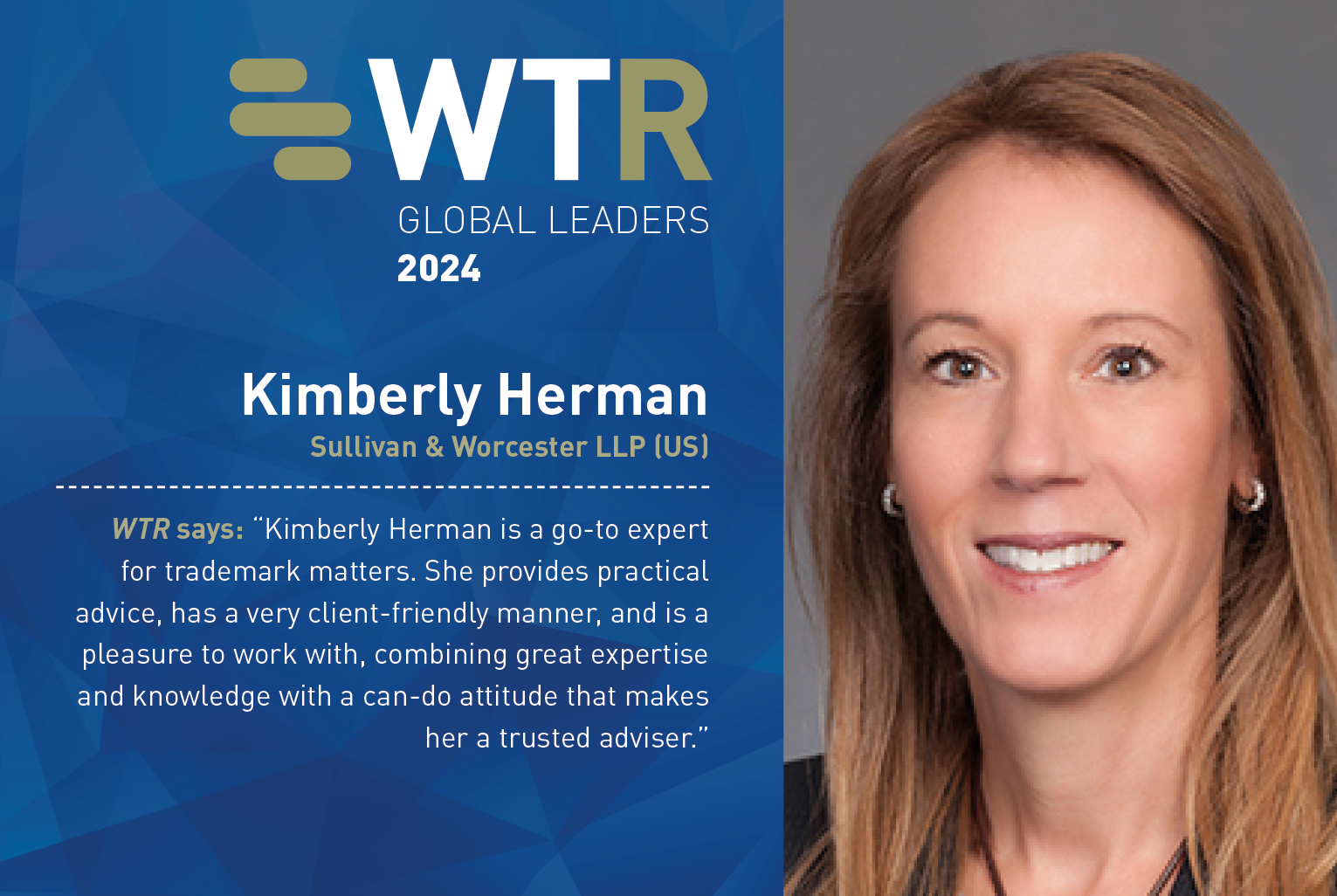Kimberly Herman

If you could make one change to the US trademark regime, what would it be and do you think it is likely to happen?
I would change the law to require owners of US trademark registrations that are based on foreign trademark registrations to prove use of the mark in US interstate commerce before the USPTO issues the registration, or within a very short timeframe thereafter. The current regime allows these rights holders to avoid showing use of the mark in the United States until the declaration of use is due, which is five years from the date of registration. While the registration can be attacked if the mark is not used within three years from the grant date, this gives US registrations based on foreign registrations an advantage in that they do not need to prove use to obtain a US registration. Effectively, this is a three-year grace period that prevents third parties from attacking the US registration based on non-use in the United States during this time. It is only after the expiry of this grace period that a third party can attack on abandonment grounds. I doubt this change would ever happen, as it’s a way for the US government to have a recurring revenue stream.
How have you seen challenges facing your clients shift over the last 12 months, particularly in the ever-changing online sphere in which you specialise?
AI continues to be a big challenge in the IP space – particularly for my art, film and software clients. It used to be that computer-generated content relied on the creative input of the programmer, but today, computer programs are making independent decisions to generate new content.
Using AI to create content has significant implications under copyright law. Computer programs have shifted from being mere tools to create content – similar to a paint brush – to a neural network that is just like the thought process a human goes through to create an original work of authorship, without any human intervention! Imagine you invest significant sums of money in a system that generates content, only to find that the content is not protected under copyright – or any law – and can therefore be used by anyone in the world without permission or payment.
On the trademark front, I’ve seen clearance of brand source use AI, which is pretty cool. Without much human intervention, a company can now obtain risk-profile data associated with the adoption and use of trademarks that is on par with – or maybe even better than –human capability.
Your practice spans multiple jurisdictions and industries. How do you stay up to date with all of the latest IP developments around the world?
I do a lot of reading and keep in touch with colleagues in other jurisdictions. I also do a lot of lecture-circuit international travel, through which I have the pleasure of collaborating with colleagues from other countries on topics that we present primarily to in-house counsel.
With such a wide range of expertise, what has been your most memorable case to date, and why does it stand out?
A few years ago, I settled a major copyright infringement case in favour of my client, the estate of a world-renown Israeli artist, whose works were used in an unauthorised manner in a hit television series.
How are you managing the surge in scams and online fraud cases targeting trademark applicants and authorities in the United States?
This is a huge problem. We are making our clients aware of these scams and include the following scam warning in our written communications with them:
Please do not make any payments in connection with this application unless specifically directed by our firm. We are aware of a number of scams, solicitations and illegitimate requests for payment targeted to new mark owners. More information about these misleading notices is available on our website. If you receive any invoices or similar documents, we recommend that you disregard them or send them to us for review. When in doubt, please contact us.
Kimberly Herman
Partner
[email protected]
Kimberly Herman is a corporate attorney with a focus on contract negotiation and intellectual property. She leads Sullivan's intellectual property, technology, media and entertainment groups. Ms Herman’s practice spans the United States, Europe, the Asia-Pacific and the Middle East and includes advising clients on numerous issues relating to licensing, copyrights, trademarks, patents and trade secrets.